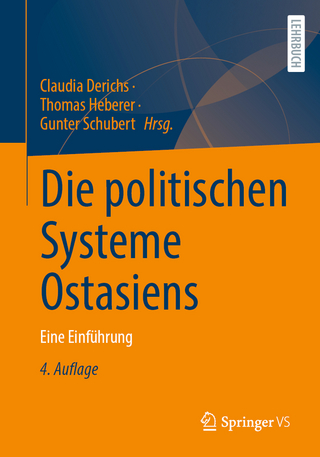
Coercive Distribution
Seiten
2018
Cambridge University Press (Verlag)
978-1-108-46213-6 (ISBN)
Cambridge University Press (Verlag)
978-1-108-46213-6 (ISBN)
This Element challenges existing models and introduces an alternative, supply-side, and state-centered theory of coercive distribution. It illustrates the patterns, timing, and breadth of coercive distribution using quantitative evidence and historical case studies. Distribution is found to be one of coercion's most effective expressions.
Canonical theories of political economy struggle to explain patterns of distribution in authoritarian regimes. In this Element, Albertus, Fenner, and Slater challenge existing models and introduce an alternative, supply-side, and state-centered theory of 'coercive distribution'. Authoritarian regimes proactively deploy distributive policies as advantageous strategies to consolidate their monopoly on power. These policies contribute to authoritarian durability by undercutting rival elites and enmeshing the masses in lasting relations of coercive dependence. The authors illustrate the patterns, timing, and breadth of coercive distribution with global and Latin American quantitative evidence and with a series of historical case studies from regimes in Latin America, Asia, and the Middle East. By recognizing distribution's coercive dimensions, they account for empirical patterns of distribution that do not fit with quasi-democratic understandings of distribution as quid pro quo exchange. Under authoritarian conditions, distribution is less an alternative to coercion than one of its most effective expressions.
Canonical theories of political economy struggle to explain patterns of distribution in authoritarian regimes. In this Element, Albertus, Fenner, and Slater challenge existing models and introduce an alternative, supply-side, and state-centered theory of 'coercive distribution'. Authoritarian regimes proactively deploy distributive policies as advantageous strategies to consolidate their monopoly on power. These policies contribute to authoritarian durability by undercutting rival elites and enmeshing the masses in lasting relations of coercive dependence. The authors illustrate the patterns, timing, and breadth of coercive distribution with global and Latin American quantitative evidence and with a series of historical case studies from regimes in Latin America, Asia, and the Middle East. By recognizing distribution's coercive dimensions, they account for empirical patterns of distribution that do not fit with quasi-democratic understandings of distribution as quid pro quo exchange. Under authoritarian conditions, distribution is less an alternative to coercion than one of its most effective expressions.
| Erscheinungsdatum | 13.06.2018 |
|---|---|
| Reihe/Serie | Elements in the Politics of Development |
| Zusatzinfo | Worked examples or Exercises |
| Verlagsort | Cambridge |
| Sprache | englisch |
| Maße | 153 x 230 mm |
| Gewicht | 180 g |
| Themenwelt | Naturwissenschaften |
| Sozialwissenschaften ► Politik / Verwaltung ► Politische Systeme | |
| Sozialwissenschaften ► Soziologie ► Spezielle Soziologien | |
| Wirtschaft ► Allgemeines / Lexika | |
| Wirtschaft ► Volkswirtschaftslehre ► Makroökonomie | |
| ISBN-10 | 1-108-46213-8 / 1108462138 |
| ISBN-13 | 978-1-108-46213-6 / 9781108462136 |
| Zustand | Neuware |
| Informationen gemäß Produktsicherheitsverordnung (GPSR) | |
| Haben Sie eine Frage zum Produkt? |
Mehr entdecken
aus dem Bereich
aus dem Bereich
eine Einführung
Buch | Softcover (2023)
Springer VS (Verlag)
39,99 €


